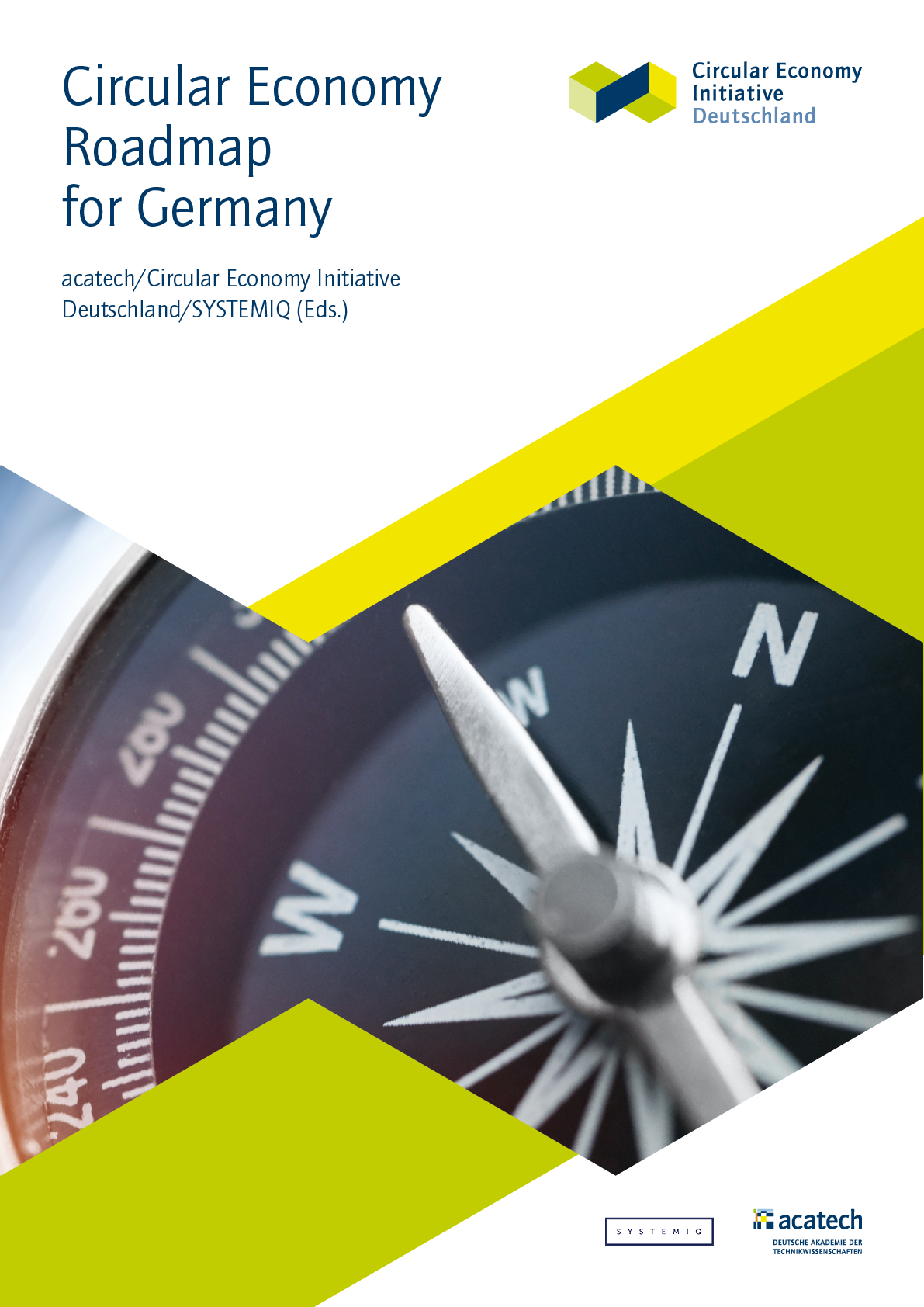Over the last few years, the concept of a Circular Economy has internationally gained momentum. The European Union and various member states have developed strategic plans for a transition towards a resource-efficient economic framework according to the principles of a Circular Economy. Also, countries outside Europe follow this guiding principle, such as China, Japan or Canada.
Against the backdrop of the European Green Deal and its implementation, an economy that uses fewer resources is becoming increasingly important. In this respect, the transformation to a Circular Economy can be decisive for the competitiveness of Germany as a business location. With the coalition agreement of the new Federal Government, the decision was presented to develop an overarching, national Circular Economy strategy for Germany. With the national programmes on resource efficiency, waste prevention and sustainable consumption as well as the raw materials strategy, important political instruments that specifically support the transition to a Circular Economy already exist. These must now be bundled and further developed. In addition, comprehensive public funding strategies have been launched and an increasing number of initiatives and actors are working on the topic. What is still missing is a unified, overall societal vision for the transition to a Circular Economy. This vision describes the basic motivation for the system change, ties in with existing political goals of other policy areas and develops a narrative that emphasises the overarching relevance of the Circular Economy.
With the Circular Economy Roadmap for Germany of the Circular Economy Initiative Germany (CEID), an overarching and forward-looking framework for action has been developed that clearly identifies important transformation requirements in politics, business and science. Several concrete recommendations for action of the Circular Economy Roadmap Germany are already reflected in the coalition agreement of the new Federal Government.
An initial study of the Circular Economy Initiative Deutschland (CEID) examined European models of the Circular Economy. Based on these results and the findings of the CEID working groups, the CEID developed the Circular Economy Roadmap for Germany.
For the export-oriented German economy, the Circular Economy can only develop its full potential in international cooperation. The topic of the Circular Economy offers Germany the opportunity to adopt a new perspective and to contribute impulses to other international debates such as the Sustainable Development Goals of the United Nations, the 2-degree respective 1.5-degree target and the protection of biodiversity. The Circular Economy Initiative contributes to eliminating the contradiction between prosperity and environmental and resource conservation.
In the Circular Economy Roadmap for Germany, some 130 experts from industry, science and civil society synthesised the findings from the various interdisciplinary and cross-sectoral working groups of the CEID into a consolidated statement with societal relevance. The focus of the roadmap has thus been, from the very beginning, on shaping a consistent, common target for a Circular Economy in 2030, the identification of central focal points for action and formulating concrete recommendations for action.
The Circular Economy Roadmap for Germany is a scientifically based framework for action that systemically describes the necessary steps for Germany’s transition to a Circular Economy. It contains recommendations for action that are intended to provide orientation for decision-makers from politics, industry and science.





